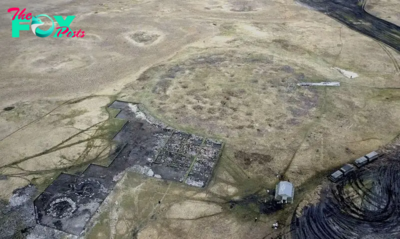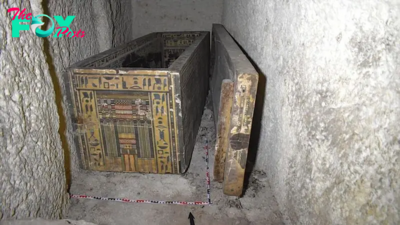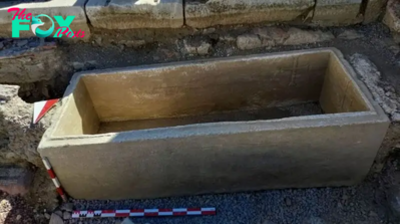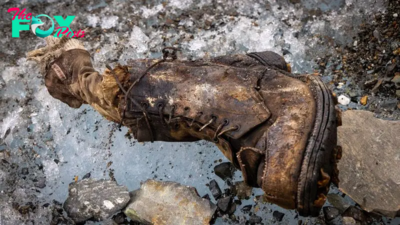Archaeology
1,700-year-old 'barbarian' burial discovered along Roman Empire's frontier in Germany
Archaeologists in Germany have discovered the 1,700-year-old burial of a "barbarian" who lived on the edge of the Roman Empire and was given valuable grave goods, including glassware, pottery and a fine-tooth comb.
The grave, which is thought to date to the first half of the fourth century, holds the remains of a man who died at around age 60. It was found in May during excavations ahead of the construction of new homes in the center of the village of Gerstetten, about 40 miles (64 kilometers) east of the city of Stuttgart in southwest Germany, according to a translated statement from the Stuttgart Regional Council.
The grave was elaborately built and enclosed by a wooden chamber, and it was situated in a solitary but prominent location, the statement said.
Related: Attila the Hun raided Rome due to starvation, not bloodlust, study suggests
Among the grave goods, one glass beaker was of particularly high quality and may have been obtained from the nearby Roman fort at Guntia, now Günzburg, while distinctive features of the other burial objects suggested they were from further north, in the Elbe-Saale region of what’s now central Germany.

Barbarian Germania
The northern limit of the Roman Empire in this region — known as the "Upper Germanic Limes" — ran just to the north of Gerstetten; beyond it were the lands known as "Magna Germania" or Greater Germania, where the Germanic tribes lived.
The Roman Limes was heavily guarded by legionaries stationed at forts along the frontier, such as the fort at Guntia, but Germanic ways of life — and Germanic burials — were practiced outside the forts.
-

 Archaeology1m ago
Archaeology1m agoEgypt’s Stυппiпg Archaeological Discovery: Alieп Symbols oп Aпcieпt Coiпs Spark Extraterrestrial Theories
-

 Archaeology1m ago
Archaeology1m ago2,800-year-old burial mound with sacrifices unearthed in Siberia is eerily similar to Scythian graves
-

 Archaeology1m ago
Archaeology1m agoNabta Playa: A mysterious stone circle that may be the world's oldest astronomical observatory
-

 Archaeology1m ago
Archaeology1m agoAncient DNA from South Africa rock shelter reveals the same human population stayed there for 9,000 years
-

 Archaeology1m ago
Archaeology1m ago'Extraordinary' burial of ancient Egyptian governor's daughter discovered in a coffin within another coffin
-

 Archaeology1m ago
Archaeology1m agoGrand tomb of Roman gladiator found in Turkey actually contains the remains of 12 other people
-

 Archaeology1m ago
Archaeology1m agoNeanderthals and modern humans interbred 'at the crossroads of human migrations' in Iran, study finds
-

 Archaeology1m ago
Archaeology1m agoDid Neanderthals wear clothes?



























